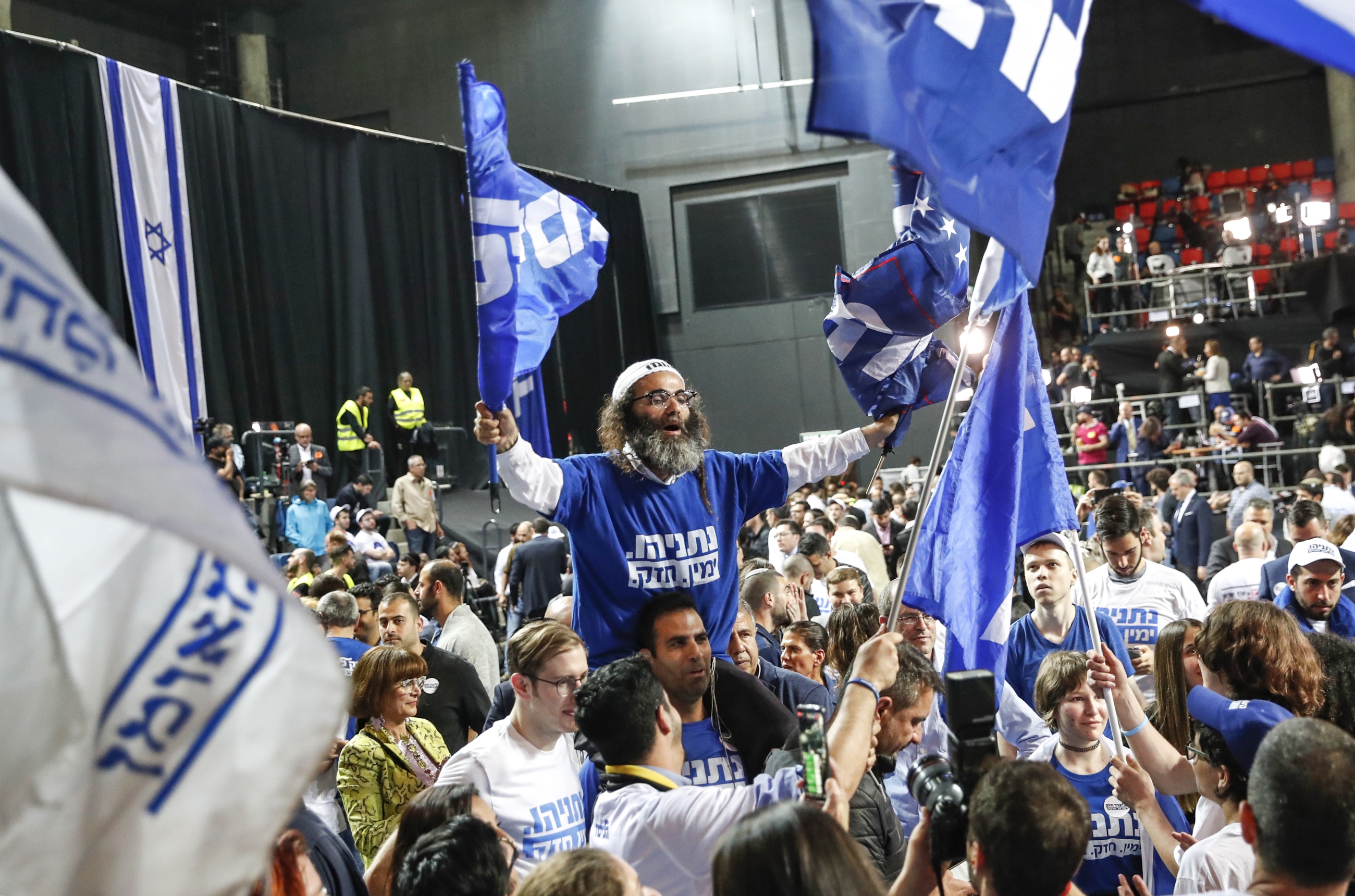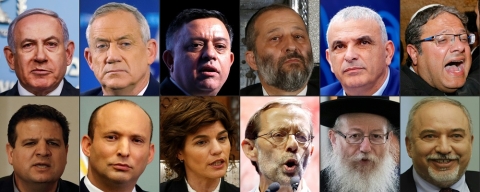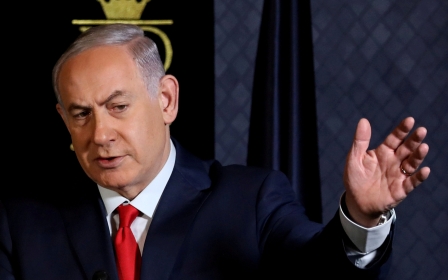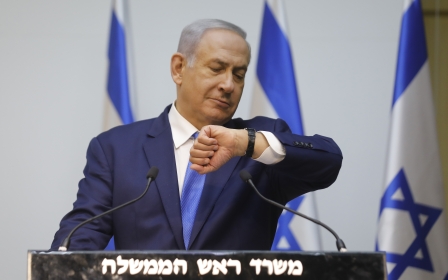Netanyahu set for record fifth term as Israel's prime minister

Prime Minister Benjamin Netanyahu appears poised to take up a record fifth term in office, after running neck-and-neck with his challenger Benny Gantz in Israel's national elections, the country's three main television channels said on Wednesday.
With 97 percent of the votes counted, neither of the candidates' parties had captured a ruling majority, but Netanyahu was clearly in a strong position to form a coalition government with other right-wing factions that have backed him.
The closely contested race was widely seen in Israel as a referendum on Netanyahu's character and record in the face of corruption allegations.
He faces possible indictment in three fraud cases, and has denied wrongdoing in all of them.
The veteran right-wing leader's Likud party and Gantz's new centrist Blue and White party both won 35 seats, according to the Knesset website and the Israeli TV channels. That would mean a five-seat gain for Likud.
Final results were expected by Friday, though the provisional results showed 65 of the Knesset's 120 seats would go to the right-wing bloc of parties led by Netanyahu, against a total of 55 seats for centre-left factions.
'A night of colossal victory'
"It is a night of colossal victory," the 69-year-old Netanyahu told cheering supporters in a late-night speech at Likud headquarters, while cautioning that a "long night and possibly day" lay ahead awaiting official results.
"The right-wing bloc will continue to lead Israel for the next four years," he added.
How do Israeli elections work?
+ Show - HideIsraelis will head to the polls on 9 April to elect candidates to its 120-seat parliament, the Knesset. It will be the second election in just four years, after under-pressure Prime Minister Benjamin Netanyahu called early polls.
Voters will vote for parties, not individual candidates; the more votes a party gets, the more Knesset seats. Click here for profiles of the parties and the candidates.
Since no single party has ever captured more than the 60-seat threshold to form a government on its own, coalitions are an established part of political life. This makes Israel’s election a free for all, with some 47 parties competing this year alone. Parties must receive at least 3.25 percent of the popular vote in order to gain a seat in the Knesset.
After the election, Israel’s president will consult with party leaders to determine which coalition is most likely to form a stable government. The president will also nominate the prime minister, who is usually the head of the party that won the most seats.
The Gesher, Zehut and far-right Hayamin Hehadash (New Right) parties did not reach the threshold of 3.25 percent to get a seat at the Knesset, early exit polls showed.
The United Arab List-Balad (Balad-UAL), a coalition of political parties representing Palestinian citizens of Israel, netted at least four seats.
"We won! The Israeli public has had their say,” Gantz tweeted as the polls closed on Tuesday, but the results for Israel's smaller parties look to have denied him any chance of a majority.
'Manipulation and psychological warfare'
After polls closed on Tuesday, former defence minister and leader of the right-wing Yisrael Beiteinu party, Avigdor Lieberman, told Israeli news site Haartez that he did not believe the exit polls were accurate, accusing pollsters of “manipulation and psychological warfare”.
“As someone who walked around all day in the field and saw how the exit polls were conducted, there is a non-negligible gap between the exit polls and the real voting results,” Lieberman told Haaretz.
No party has ever won an outright majority in the 120-seat parliament, meaning days or even weeks of coalition negotiations will likely lie ahead.
After the election, Israel's president, Reuven Rivlin, will consult the leaders of every party represented in the Knesset and select the person he believes has the best chance of forming a government.
If Netanyahu does win the race, the 69-year-old prime minister will become the longest-serving premier in Israel's 71-year history.
Hidden cameras
Earlier on the election day, Netanyahu's Likud party provided activists with 1,200 hidden cameras "to monitor" polling stations in Palestinian areas within Israel, Haaretz reported. The Palestinian community accused Likud of attempting to intimidate its voters.
The cameras were taken down once word spread and Israel's Central Elections Committee filed a police complaint.
According to pollsters, Palestinians citizens of Israel turned up to polls in historically low numbers.
With 94 percent of votes counted, the Arab-majority parties Hadash-Taal and Balad-UAL had six and four seats, respectively.
Days before the election, Palestinian citizens of Israel launched a campaign calling for the boycott of the Israeli elections.
Middle East Eye propose une couverture et une analyse indépendantes et incomparables du Moyen-Orient, de l’Afrique du Nord et d’autres régions du monde. Pour en savoir plus sur la reprise de ce contenu et les frais qui s’appliquent, veuillez remplir ce formulaire [en anglais]. Pour en savoir plus sur MEE, cliquez ici [en anglais].







